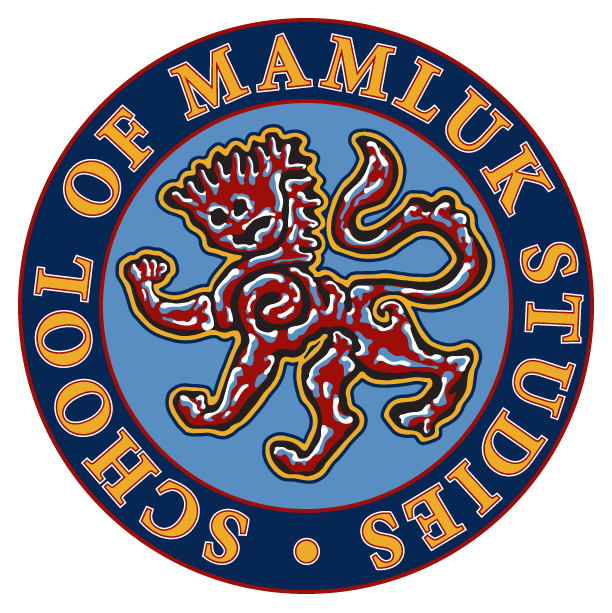Mamluk Studies Resources
The Middle East Documentation Center at The University of Chicago
Fifth Conference of the School of Mamluk Studies
Ghent University, Belgium
July 5-6, 2018

SMS 2018, Ghent
The Fifth Conference of the School of Mamluk Studies, which will be held at Ghent University (Belgium) from July 5-7, 2018.
The conference website at sms2018.ugent.be may sometimes be more current, so be sure to check there for updates to the program or further information about travel, accommodations, etc.
The conference will be conducted in two parts and will be preceded by a three-day intensive course on Digital Islamic Humanities from July 2-4, 2018.
The three-day intensive course in Digital Islamic Humanities is intended for advanced graduate students and other qualified participants. It will be offered by Dr Maxim Romanov (Universität Wien) and will be held immediately before the fifth conference of the School of Mamluk Studies at Ghent University, in collaboration with the Ghent Centre for Digital Humanities (July 2-4, 2018). The course will be demanding and hands-on in its format, but no previous training is required. The course will cover topics such as digitization, computational analysis, datamodelling, etc., and will introduce digital tools, projects, repositories and practices that are currently available for historical/Islamic/Mamluk research.
The first day of the conference, July 5, will be themed. The theme of this part of the conference will be Historiography/Adab.
Almost fifty years ago the late German scholar and pioneer of Mamluk studies Ulrich Haarmann (1942-99) formulated his ‘Literarisierung’ thesis. Haarmann’s Quellenstudien zur frühen Mamlukenzeit (1969) arguably led the way in a very slowly but steadily swelling wave of scholarship that, in the recent decade in particular, has started to radically change understandings of the meanings and value of ‘medieval’ historiographical texts. In this process, not just more of these texts have come to light or have become available, but also their very nature as texts, as objects, as actors, and as acts are increasingly being appreciated. As such, over the years ‘Literarisierung’ as a characteristic of ‘medieval’ historiography and its transformation may have proven a debatable conceptualization; at the same time its incentive to think of that historiography as a partner in a wider socio-cultural praxis that highly valued literary communication has certainly struck root. In recent years not just Thomas Bauer’s formulation of the notion of the adab-ization of elite communication has added important insights in this respect, but so has Konrad Hirschler’s identification of a ‘popularization’ of textual practices. In view of these and many related inspiring new insights, we invite contributions to the themed day that engage in any way with the relationship between ‘Mamluk’ historiography and adab, that tackle the issue of historiography as adab, or that wish to highlight any aspect of historiography’s adab-ization or of its ‘popularization’. Without attempting to offer an exhaustive presentation of possible approaches to this theme, nor wishing to forestall any discussions of definition and genre, papers may deal with individual authors and their corpus; particular texts, narratives, and stories; styles, vocabularies, and discourses; reading practices, textual performances, and any other related phenomena of historiographical production, reproduction, and consumption.
The following two days of the conference (July 6 and 7) will be structured in pre-organized panels that will focus on any aspect of the intellectual, political, social, economic, and artistic life of the Mamluk period.
Program
A detailed schedule will be published soon.
Thursday, July 5: 12 Themed papers:
Christian Mauder: “And They Read in a Book of History” – Consuming, Presenting and Producing Texts about the Past in al-Ghawrī’s majālis as Legitimatory Practices”
Clement Onimus: “al-ʿAyni, a committed historian”
Daniella Talmon-Heller: “Historiography in Ibn Taymiyya’s Treatises against Ziyārāt ”
David Larsen: “Judge, Witness, and Lisān al-ḥāl in the “Disputation of Night and Day” by ʿAlwān al-Ḥamawī”
Doris Behrens-Abouseif: “Polymathy in Mamluk biographies”
Evan Metzger: “Historical Representation as Resurrection: al-Udfuwī and the Imitation of Allah”
Gowaart Van Den Bossche: “Literarisierung reconsidered in the context of sultanic biographies: the case of BnF Arabe 1705”
Iria Santas De Arcos: “Andalusian Adab in the Mamluk Period”
Koby Yosef: “Al-Maqrīzī’s Sulūk, Muqaffá, and Durar al-ʿUqūd : Trends of ‘Literarization’ in the Historical Corpus of a Fifteenth-Century Egyptian Religious Scholar ”
Nobutaka Nakamachi: “Why did al-ʿAynī erroneously note his source as Ibn Kathīr?”
Rasmus Bech Olsen: “If a Governor Falls in Damascus – early Mamluk historiography analyzed through the story of Sayf al-Dīn Karāy al-Manṣūrī”
Victor de Castro Leon: “Ibn al-Khaṭīb and his Mamluk Reception”
Friday & Saturday, July 6 – 7: 8 Panels (organizers and titles):
Reuven Amitai: “Palestine under Mamluk Rule”
Samet Budak: “A Mamluk-Ottoman Cultural Zone in the Late Mediaeval Mediterranean”
Amir Mazor: “Jews in the Mamluk Sultanate: Social, Political and Religious Aspects”
Ursula Bsees: “Narratives and documents: New directions in Middle Period historiography”
Mohamad El-Merheb: “New approaches to Islamic political thought: authors, texts, and conceptions in the Mamluk period.”
Anthony T. Quickel: “New Views on Waqf during the Mamlūk Sultanate ”
Konrad Hirschler: “Reading the Library: Mamluk Manuscripts in Modern-Day Collections”
Jo Van Steenbergen: “15th-century Arabic history writing: a contextualist approach”
To view the schedules of previous conferences, see Past SMS Conferences.
© Middle East Documentation Center. The SMS logo is based on the lion emblem used by Sultan Baybars.